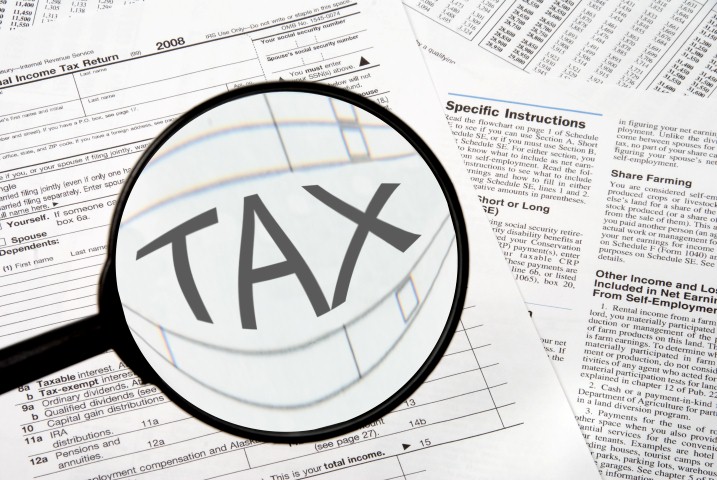

The days of big name tech firms and global corporations utilising low-taxing countries such as Ireland or Luxembourg, to limit their corporate tax obligations, may soon be ending.
This is because after years of talks at the Organisation for Economic Cooperation and Development (OECD), global leaders last Friday reached an agreement on a global corporation tax rate.
The group of developed nations agreed to a global minimum corporate tax rate of 15 percent, which is a major shift for smaller economies, such as Ireland, which have previously attracted international firms thanks to its lower tax rate.
The OECD made the announcement on Friday, saying the ground-breaking tax deal will be good for the digital age.
This major reform of the international tax system will ensure that Multinational Enterprises (MNEs) will be subject to a minimum 15 percent tax rate from 2023, the OECD said.
The deal has been agreed by 136 countries and jurisdictions representing more than 90 percent of global GDP.
The OECD said that Estonia, Hungary and Ireland have joined the agreement, meaning it is now supported by all OECD and G20 countries.
There are currently four countries who have not yet joined the agreement, namely Kenya, Nigeria, Pakistan and Sri Lanka.
The deal will also apparently reallocate more than “$125 billion of profits from around 100 of the world’s largest and most profitable MNEs to countries worldwide, ensuring that these firms pay a fair share of tax wherever they operate and generate profits.”
The OECD agreement finalises the finance minister deal of the G7 countries, who reached a corporate tax agreement at a meeting in London, ahead of the G7 summit in Cornwall in June.
The next step will see the two-pillar solution delivered to the G20 Finance Ministers meeting in Washington DC on 13 October, then to the G20 Leaders Summit in Rome at the end of the month.
The OECD said the global minimum tax agreement does not seek to eliminate tax competition, but puts multilaterally agreed limitations on it, and will see countries collect around $150 billion in new revenues annually.
Pillar One will apparently ensure a fairer distribution of profits and taxing rights among countries with respect to the largest and most profitable multinational enterprises. It will re-allocate some taxing rights over MNEs from their home countries to the markets where they have business activities and earn profits, regardless of whether firms have a physical presence there.
This means that multinational enterprises with global sales above 20 billion euros and profitability above 10 percent will be covered by the new rules, with 25 percent of profit above the 10 percent threshold to be reallocated to market jurisdictions.
Pillar Two introduces a global minimum corporate tax rate set at 15 percent.
The new minimum tax rate will apply to companies with revenue above 750 million euros and is estimated to generate around $150 billion in additional global tax revenues annually.
The OECD said further benefits will also arise from the stabilisation of the international tax system and the increased tax certainty for taxpayers and tax administrations.
“Today’s agreement will make our international tax arrangements fairer and work better,” said OECD Secretary-General Mathias Cormann. “This is a major victory for effective and balanced multilateralism.”
“It is a far-reaching agreement which ensures our international tax system is fit for purpose in a digitalised and globalised world economy,” said Cormann. “We must now work swiftly and diligently to ensure the effective implementation of this major reform.”
Countries are aiming to sign a multilateral convention during 2022, with effective implementation in 2023.
The issue of mostly American big name corporations using certain low tax European nations such as Ireland or Luxembourg to base their operations, has long been a bug bear for the European Commission and European governments.
In 2019 for example, Amazon was accused of paying less tax in the UK over a 20 year period, than some major UK retailers pay in a single year.
But the European Commission has not enjoyed much success in its pursuit of US firms paying tax.
For example in July last year, Europe’s second-top court rejected an EU order that Apple had to pay 13 billion euros ($11.8bn) in Irish back taxes.
The EC is challenging that ruling.
As a consequence of an absence of an agreement corporate tax rate, France and other countries introduced their own digital tax regimes.
The United States responded and introduced tariffs on about $2bn of imports, including from the UK, in retaliation for these digital service taxes.
But the US suspended the tariffs for 180 days in order to allow talks to take place at the G7 and G20 summits this year.
However, the new corporate tax agreement will likely have its critics, who argue that 15 percent is too low.
In June this year tax activists levelled a serious allegation against what they call the ‘Silicon Six’, namely Facebook, Apple, Amazon, Netflix, Google and Microsoft.
The Fair Tax Foundation revealed they had undertaken a forensic analysis of the tax conduct of the Silicon Six, and alleged they had paid $100 billion less in tax than they had claimed.
DeepMind co-founder Demis Hassabis says top universities, tech talent give UK key edge in fast-moving…
BYD says new electric vehicle platform can charge at 1,000 kW power, giving 400 kilometres…
Incoming Intel chief executive Lip-Bu Tan considering cuts to middle management, revamp of Intel Foundry,…
South Korean chip exports to China fall by nearly one-third after US government restricts sales…
Telegram founder Durov permitted to temporarily leave France as authorities continue probe into criminal activity…